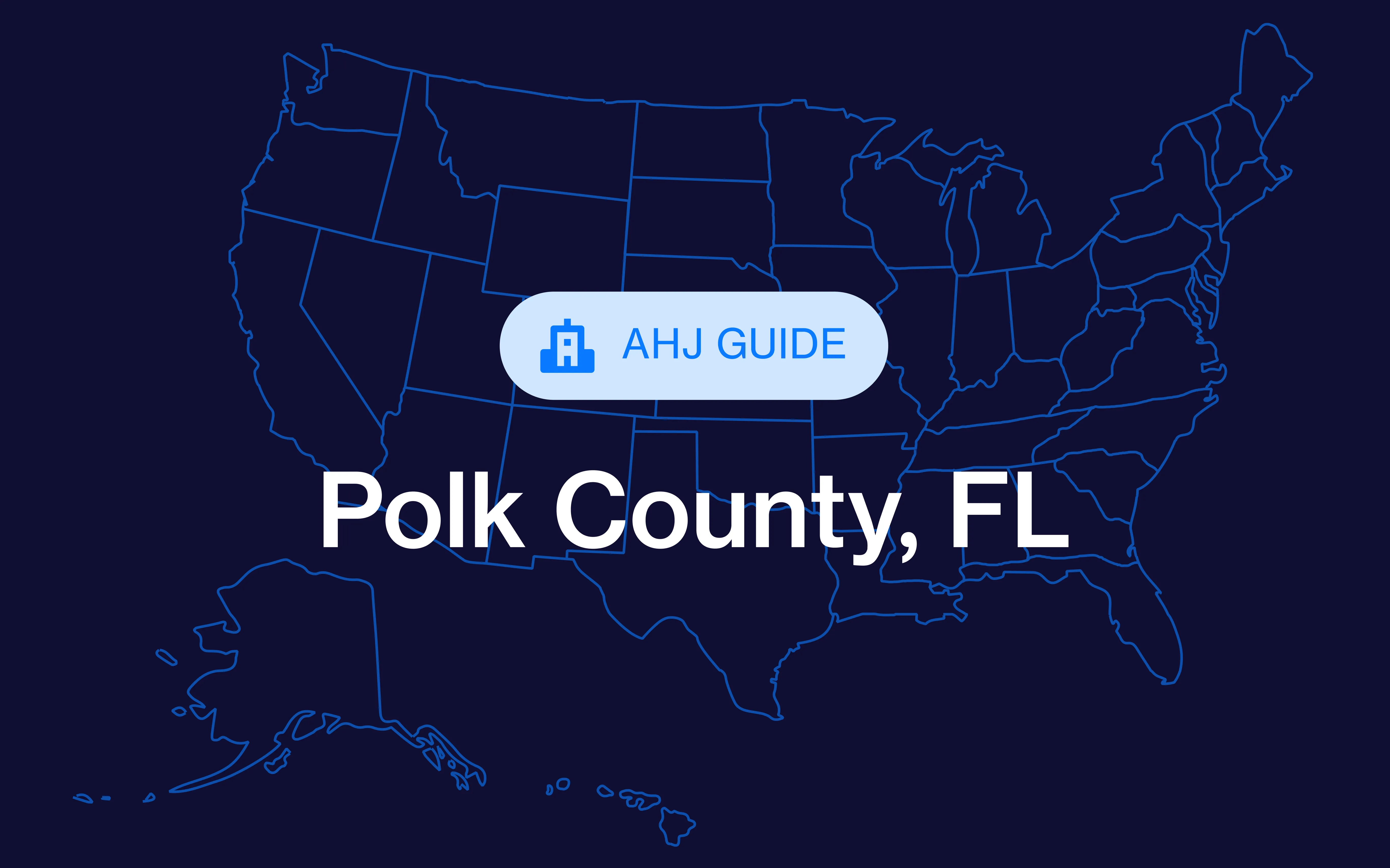Between hurricane safety codes, salt-air corrosion concerns, and strict environmental protections, every permit application on Maui, Hawaii demands precision. Whether you’re rebuilding in Lahaina, adding square footage in Kihei, or planning a resort project along the coast, getting approvals from the Maui County Building Department is a process that requires preparation.
This guide breaks down everything you need to know about Maui building permits: what work requires one, how to apply through the MAPPS portal, how much it costs, and where to find key county resources.
Simplify permitting in Maui with PermitFlow. Learn how.
What requires a building permit in Maui?
The Maui County Building Department requires permits for nearly all forms of structural construction, including residential, commercial, and public-sector developments.
Generally speaking, you need a permit for:
- New buildings, additions, and most alterations, including work affecting structure, egress, or fire-resistance
- Covered decks/porches, roofed structures, or decks >30 in above grade
- Pools that are in-ground, partially below grade, or >5,000 gal
- Reroofing that isn’t R-3/U (e.g., commercial), or any reroof that adversely affects structural components
- Commercial kitchen hoods/ventilation, fire or standpipe systems, or any work affecting fire-resistive assemblies or requiring structural reinforcement.
- Fences/walls over 7 ft (unless qualifying as an ag/axis-deer fence <10 ft under the ordinance)
- Retaining walls with >3 ft retainage, total height >7 ft, supporting steep slopes, or too close to other retaining walls (spacing test)
- Site water features >24 in deep or landscaping/site structures not covered by the official’s exemption
- Shipping containers outside industrial zones, altered/stacked, used for habitation, within setbacks or <10 ft to structures, storing vehicles/hazardous/personal property, or without the required declaration
Maui County building permit exemptions
Some work may qualify for an exemption under Maui County Code Chapter 16.26B. These exemptions are limited and must still comply with zoning, flood, and fire regulations.
- One-story detached accessory structures <120 sq ft; not habitable, no vehicle/hazardous storage, not blocking egress
- One-story agricultural buildings <200 sq ft in Ag/Rural districts with >10 ft to other structures
- Shade-cloth structures (nursery/ag) <20,000 sq ft in Ag district; >15 ft separation; no service systems
- Water tanks on grade up to 5,000 gal (H:D <2:1) or 15,000 gal (H:D <1:2)
- Unroofed decks <30 in above grade
- Underground tanks/utility vaults/individual wastewater systems not below an occupiable building
- Above-grade prefabricated pools (Group R-3) <5,000 gal
- Reroofing of R-3 one- & two-family and Group U accessory structures (no adverse structural impact)
- TV/radio antennas and roof-mounted solar panels
- Window awnings (R-3/U), wall-supported, projection <54 in, no extra supports, meet fire-separation
- Finish work (painting, papering, tiling, carpeting, cabinets/countertops, shelves)
- Movable fixtures/cases/racks/counters/partitions <5′-9″ high
- Replacement of electrical, plumbing, mechanical systems excluding commercial kitchen hoods, fire/standpipe systems, work affecting fire-resistive elements, or requiring structural reinforcement
- Fences & walls <7 ft; ag/axis-deer fences <10 ft (measured separately from retaining walls if foundations are separate)
- Retaining walls with <3 ft retainage and total height <7 ft, not supporting steep slopes or near other retaining walls (spacing rule applies)
To get a full list of works exempt from Maui permitting, refer to the Code of Ordinances.
Maui building permit cost
Permit fees in Maui are calculated based on project valuation, square footage, and permit type. Here’s what to expect:
Building and construction permit fees
Maui also imposes a building permit plan review fee that is 35% of the building permit fee.
For more details, refer to the County of Maui fee schedule.
How long do building permits last in Maui?
Most permits issued by the Maui Building Division are valid for 5 years. Once work begins and inspections are passed, the permit remains active. If a permit expires before the work is finished, you'll need to get a new permit.
Maui trade permits

Plumbing permits
Plumbing permits are required for all new installations, line reroutes, and fixture replacements that alter water or waste systems.
- Issuing permit – Residential: $23
- Issuing permit – Non-Residential: $69
- Transferring permit – Residential: $23
- Transferring permit – Non-Residential: $69
Electrical permits
Cover all electrical system changes, including panel upgrades, EV chargers, or solar interconnects.
To get more information on other fees, refer to the most recent budget ordinance page.
Don’t let permitting delays derail your project.
PermitFlow handles Maui permitting end-to-end, from AJH research to plan submission and beyond. Connect with our experts →
How to get a building permit in Maui
Step 1: Prepare your documents
Before applying for a Maui building permit, first collect the following documents:
- General plan standards
- Title sheet & plot/Site plan
- 6”×6” approval stamp box at the top-right of the title sheet:
- Owner/project name, TMK, site address (street fronting property)
- Lot diagram with lot-line dimensions/area
- Location of all existing & proposed buildings/structures (label existing with prior permit numbers if known)
- Setbacks (property lines to structures) and separations (between structures)
- Spot elevations, existing & proposed contours, site drainage away from the building
- Easements, utilities, driveway, cesspool/septic, or sewer cleanout
- Building code data (On drawings)
- Floor plans
- Foundation plan
- Floor & roof framing plans (With details)
- Building sections (Cross-sections) with details
- Exterior elevations
- Means of egress plan (For commercial projects)
- Specifications / Cut-sheets
Note: Find more information on the building permit sample plans and checklist page.
Step 2: Apply via the Maui MAPPS portal
Create a MAPPS account and start a Maui building permit application. In the portal, you can upload plans/documents, pay application invoices, message staff, track reviews, and later request inspections.
Step 3: Plan review
Your submittal will be routed to the Building Plan Review Section and any approving agencies (Planning, Fire, Water, etc.). Review times vary based on workload and referrals. If corrections are needed, you’ll get comments in MAPPS and resubmit there.
Step 4: Pay permit fees and receive your permit
When reviews are approved, you’ll get an invoice in MAPPS. Pay online. Permit issuance and documents post back to your MAPPS record.
Step 5: Begin work and schedule inspections
After issuance, request inspections in MAPPS (My Work → Request Inspections). You can also use the building inspection request form to apply for an inspection.
Deliver it:
- By hand: 110 Alaihi Street, Suite 203, Kahului, 7am-4pm
- Via email: DSA.building@mauicounty.gov
Need help? Reach out to building inspections at (808) 270-7375.
Maui permitting resources
- Maui County Building Division
- Address: 110 Alaihi Street, Suite 214, Kahului, HI 96732
- Phone: (808) 270-7250
- Email: building.permits@mauicounty.gov
- Permit portal (MAPPS)
- Electrical Permits & Inspections
- Address: 110 Alaihi Street, Suite 203, Kahului, HI 96732
- Phone: (808) 270-7255
- Email: dsa.electrical@mauicounty.gov
- Plumbing Permits & Inspections
- Address: 110 Alaihi Street, Suite 203, Kahului, HI 96732
- Phone: (808) 270-7368
- Email: dsa.plumbing@mauicounty.gov
- Maui County Code Chapter 16.26B
- Annual budget ordinance
- DSA building permit
- Building permit sample plans and checklist
- Building inspection request form
- How do I?
- Construction permits & applications
- How to apply for:
Streamline Maui permitting with PermitFlow
Maui’s permitting process is unique. Between hurricane safety standards, environmental protections, and island-specific codes, every submittal takes extra time and precision. The margin for error is small, and delays can add up fast.
PermitFlow simplifies it all. Our permitting platform manages the entire process — from preparing and submitting your application to tracking approvals — so you can stay focused on the build, not the bureaucracy.
Why builders trust PermitFlow in Maui:
- Local expertise: Our team knows Maui’s building codes, environmental rules, and MAPPS system inside and out, helping you avoid common hang-ups.
- Full visibility: Monitor every permit in one place, across projects and jurisdictions—even from the mainland.
- Faster approvals: We get submittals right the first time, saving weeks on reviews and costly resubmissions.
Don’t let Maui’s complex permitting processes hold up your projects. Contact the PermitFlow team today to see how we can help you keep timelines on track.








